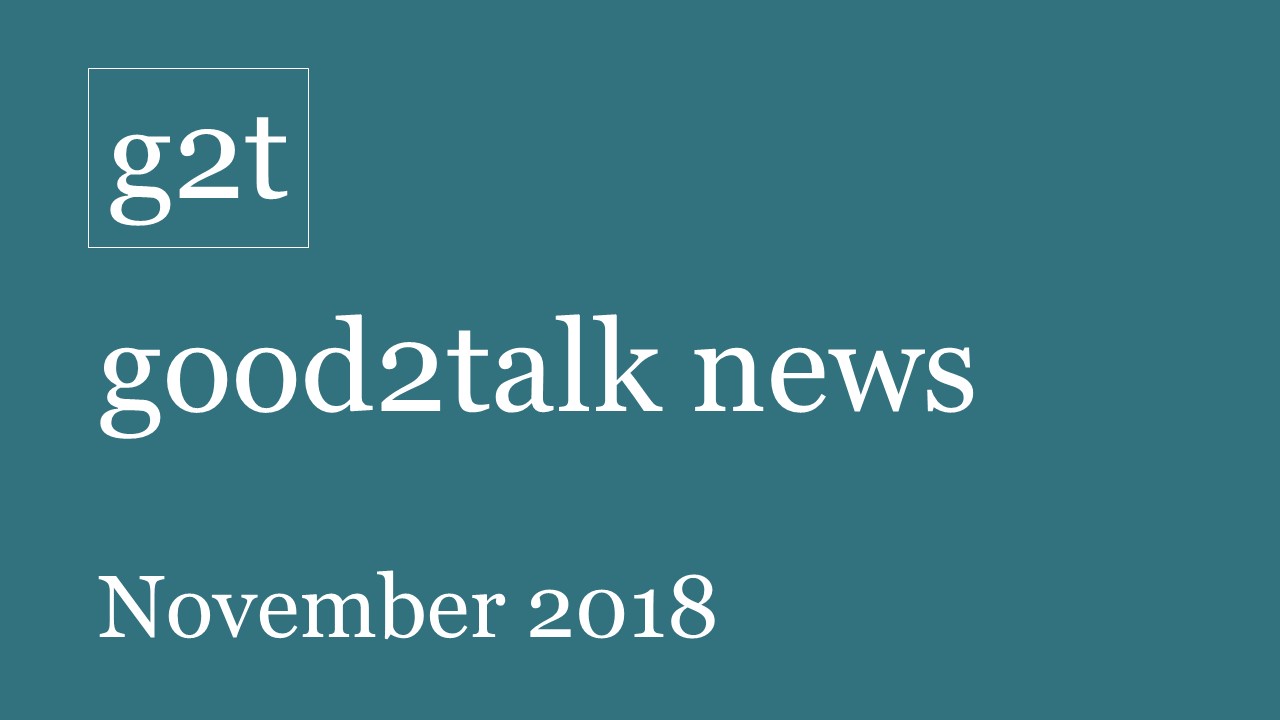In the months following the EU Referendum, the artist Grayson Perry set out to discover what people really felt about Brexit. I revisited his film of that experience, Divided Britain[1], recently in search of a way of illustrating a short talk about my book, If it is so good to talk, why is it so hard?[2] and was surprised by just how good a metaphor the whole Brexit “conversation” is for the way so many of us talk to those closest to us about the things that matter most to us.
Defending a way of life
Perhaps predictably, the end-game of the whole exercise was for Perry to make a pair of monumental pots, one representing Leave and the other Remain. Entitled Matching Pair, they are, arguably at least, not exactly matched; one is almost 4% smaller than the other.
For his inspiration, Perry looked to the people of Boston in Lincolnshire, which voted 75% leave, and Hackney in London, which voted 78% remain; the distant siblings in our national family perhaps? As he spent time with people in each, it soon became clear that both sides saw themselves as having voted – and continuing to fight – to preserve their way of life. That is, perhaps, easier to understand with the Remainers than the Leavers, and I will come back to that later.
Most of us are resistant to change to some degree or another. Change threatens loss. We fear it and most of us find that fear unpleasant enough to goad us into action – at least unless it is in a controlled environment. Of course, there are always those who are positively drawn to the unknown, but most of us are not, and that tends to get amplified in social groups. Partly that is down to the way that everything from infections to silly habits pass round a group; partly it is because, if the adrenalin junkies do not get their fix, they tend to move on, leaving the group more risk averse.
Socialisation v mobilisation
Did you know that more of the human brain is devoted to socialising, to living in a group, than to any other single task? Contrary to popular mythology, socialising, collaborating, has been our default mode for thousands of years, perhaps tens of thousands. We would have died out – killed ourselves off more like – long ago if it were not so. The problem is that all the so-called “higher brain functions” that make that happen trip offline pretty easily, and a perceived threat to our basic way of life is just the thing to do that. It makes no difference whether the threat is real or imagined; the older parts of our brain that kick in when we do mobilise do not deal in abstract concepts.
Once we are mobilised – broadly, in fight or flight mode – it all gets very selfish: it is all about personal survival. You can forget any idea of “the common good”; we have to be in socialisation mode to have any chance of even grasping that concept. Mobilised, there is little point trying to persuade us of anything. For one thing, the tiny muscles in our ears that let us pick out one voice in a crowd have gone into spasm, so we are unlikely to hear what we are being told. The micro-muscles in our faces have locked up too, and we need them both to read each other’s emotions and to warn each other how we feel. Without that we are unlikely to trust what people say even if we do hear it. Anyway, by now we are convinced we are right. The right side of our brains (which deals with ambiguity and uncertainty) has been turned way down, and the left (which is not only very literal but has a deep need to be right) has been turned all the way up to 11 and is firmly in the driving seat.
All that did a great job of keeping our forebears alive for tens, probably hundreds, of thousands of years. Unfortunately, it turns out to be much less helpful in the Digital Age than it was in the Neolithic; in fact, for us, it can prove positively dangerous.
Images of Britain
One of the first things Perry did when making his programme was to ask the people to send him images that evoked “Britain” and “Britishness” for them and which he could use to decorate his pots. Apart from a few, predictable, “tribal markings”, they both sent him very similar images; similar to the point that, if they had not been labelled, he would not have known from which side of the divide they came. Now it all gets very confusing: we are all Brits; we all use the same imagery for Britishness; we are all trying to preserve our British way of life; but half of us seem to want the other half’s worst nightmare – and vice versa! How can that possibly be?
This is where the left side of the brain really comes into its own. One of its many jobs seems to be to script that inner narrative we all have to live with. But its brief is not to write an objective history (there is probably no such thing), but to weave a continuously evolving story that helps us make some sort of sense of the world as we experience it. One of its favourite tricks is to tell us that people who think differently than we do, who experience the world differently, are either sad, mad or bad.
Maybe the sad ones are the gullible fools who fell for all those lies during the referendum campaign? Maybe the mad ones are too stupid to get their heads around the facts or to understand the arguments? And the bad are just trying to wreck your life for some weird reason all of their own. Inevitably, all that gets ramped up by a campaign of soundbites, headlines and Twitterstorms that will probably only be read by those who will “like” them, reinforcing their existing sense of rightness, and, if they are read by others, will simply throw petrol on the flames of their anger.
Community v autonomy
There was one area where the two sides’ descriptions were almost polar opposites. Leavers spoke a lot about their sense of community. Remainers spoke of “feeling European”, but there did not seem to me to be any sense of community, or belonging, in that. Rather that it came across as shorthand for a set of rights and freedoms they felt they enjoyed as individual citizens of the EU.
Perhaps that is not so surprising given the constituencies involved. The Leavers came from a relatively homogenous, predominantly agricultural, community of less than 65,000, the Remainers from a culturally diverse, metropolitan, community of nearly 275,000, embedded in a city of nearly 9 million. City dwellers tend to be much more individualistic/independent and to have a strong sense of personal agency, whereas country folk tend to be much more interdependent, with a strong sense of relatedness or belonging. Threats to both our sense of agency and our sense of relatedness have been identified as major “social threats” likely to trigger our mobilisation response.
Bereavement
Several of the Remainers Perry spoke to talked of a sense of bereavement following the referendum result. They were in a state of grief. Grief has a powerful effect on us. Generally, it makes us sad. We may become anxious, possibly even clinically depressed. We hurt. We withdraw from social life. We want others to care for us – but there is no point turning to those who have taken what we so badly feel the loss of, so we gather with our fellow sufferers; what is it they say, “misery loves a crowd”? What we really want is a hug. Seriously. It turns out that our grief system reduces our endorphin production, and hugs increase it; they really do make the pain go away!
In terms of behaviour, grief classically shows itself in a cycle of denial; anger; bargaining; depression; and, ultimately, acceptance. Sound familiar?
Emotion v reason
Towards the end of the programme, Perry spoke with both Gina Miller and Arron Banks – though not, it should be said, in the same room at the same time! Miller clearly thought that the Remain campaign had done a much better job of “marshalling the facts”. On the other hand, she readily admitted that the notion of “taking back control” had resonated with the electorate in a way nothing said by the Remain campaign had come close to. For her, if we could only “step back from the emotion” we could save ourselves from damaging both the economy and our standing in the world (both concerns commonly expressed by the good folks of Hackney).
Unfortunately for Miller, we cannot just leave our emotions at the door of the polling station. They are key to who we are and to how we make decisions. Indeed, research shows those who do not experience them seem to have difficulty making decisions at all. Are we compelled to “act out” on them? No but, even if we are not … and do not, that does not turn us into the “self-interested rational agents” beloved of classical economists.
Self-interested rational agent?
For one thing, overriding the emotional impulse, our “gut reaction” if you will, requires the brain’s mid-prefrontal cortex, the bit just above and behind the eyes which is thought to mediate all our so-called higher brain functions, to be fully online. But it is those same parts of the brain that keep us in socialisation mode, which makes “self-interested” rather an interesting notion. We are much more likely to be “group-interested” than “self-interested”, and that “group” is much more likely to equate to “kith and kin” or “people like me” than to an abstract concept like “country” let alone “the national interest”. Soldiers may rally to a cause or a flag, but they die for their mates, the people they have spent months sharing barracks and square bashing with.
Anyway, while economists may see optimal outcomes in purely economic terms, the typical voter does not appear to. It may matter to Gina Miller – and indeed to millions of others – that the economy should continue to thrive (as they define that) but if you do not feel (and I use that word advisedly) that the alleged economic benefits of EU membership have filtered down to you in any meaningful way, why would that persuade you to support the conditions that have produced them? Likewise, if you have no material sense of agency in the world, and if you feel that those in power do not really care about you, why should they care if they lose power and status? Indeed, that might well appeal to you.
So, in terms of Brexit, does it all come down to “feel good about life – vote remain; feel bad, vote leave”? There is little, if anything, in human life that is so stark and there are probably as many reasons for voting (rationalisations of voting?) as there are voters. Nevertheless, for a great many people, I think it does come close to that. Certainly, Arron Banks thought the Referendum an “almighty up-yours to those in power”. At the risk of repetition, if you feel all is going well for you, big change only threatens loss. If you feel you have little to lose, it can offer hope.
Of course, I am using Brexit here as a metaphor for what might go on in each of our families, workplaces and communities, and I will leave it to you to reflect on what that might mean in those you belong to.
More alike than different?
At the end of his programme, Perry invited all those who had contributed to it to see his finished pots. To start with, each group had the room, and the pots, to themselves. Once they had each had time to take it all in, he brought the two groups together. What seemed to shock people most was that the other group came across as just as thoughtful as they were. More than that, they were clearly just as sincere in their beliefs. Maybe they were not so sad, mad or bad after all?
One thing all agreed upon was that, if they had not been part of the project, they would have struggled to tell which pot represented Leave, and which Remain. Perry was delighted as, for him, that reaffirmed his view that we are all more alike than different … which he found hopeful.
But, to me, that is just another of those “left brain” tricks. For many, life seems easier if they believe that. If we believe we are all essentially the same, surely it should not take quite so much effort just to communicate? We are all lazy when we can be.
We are all born with a particular mind-set, a pre-disposition to be one way or another, but little (if anything) in us is hard-wired. Every new experience we have changes the way our brains are wired and the mind-set that gives rise to. There is a saying in neuroscience that “neurons that fire together, wire together”. So, in a time when we all had very similar day-to-day experiences and most of those we interacted with probably shared pretty much the same values, we likely would have been much more alike than different. But these days the possibilities and the individual choices we make seem almost endless and we lose much of that commonality as a result. What continues to unite us, of course, is that we all continue to face the same problems.
Curiosity may have killed the cat … satisfaction brought it back
As Perry found, the barriers generally only start coming down when people come together in the same place, at the same time, for the same reason. Yes, the hackles can go up to start with, but we can learn to overcome that, so that we can bring ourselves back into socialisation mode before our mobilisation goes too far.
Key to that is remembering that diversity is a strength. All those centuries of socialising has allowed us to specialise, evolving different ways of seeing the world, finding different solutions to the problems we all face. It is through combining those specialisms and maintaining some sort of dynamic balance between them that we have achieved as much as we have.
Curiosity is a great starting point. Curiosity is not about judging. It is just about wanting to know more. So, get curious about everything (it helps develop the curious habit) but, particularly, about the way you see the world. Where does that come from? Your own experience and thinking, or someone else’s? Get curious too about why others might see it so differently. What has gone on in their lives that causes them to speak and act as they do? Might that change your own thoughts?
You might also get curious about what else is in the book … .
[1] Grayson Perry: Divided Britain (dir. Neil Crombie), Channel 4, broadcast 29 May 2017, available at https://www.channel4.com/programmes/grayson-perry-divided-britain/on-demand/65075-012. Accessed 6 September 2018.
[2] Marsh, I.A. (2018) If it is so Good to Talk, Why is it so Hard? Rediscovering the Power of Conversation. Matador.
good2talk news, november 2018




Great post. http://Csp.Dayscorp.com/UserProfile/tabid/61/userId/119778/Default.aspx
Very interesting topic, regards for posting. “I am convinced that life in a physical body is meant to be an ecstatic experience.” by Shakti Gawain.
This is really interesting, You’re a very skilled blogger. I have joined your feed and look forward to seeking more of your magnificent post. Also, I’ve shared your website in my social networks!
Thank you. Welcome to the conversation.
Wonderful, what a webpage it is! This web site presents useful information to
us, keep it up.
Sweet website, super layout, very clean and utilise genial. adbcefgdfffa
Wow, marvelous blog layout! How long have you been blogging for? you made blogging look easy. The overall look of your website is great, as well as the content! dgfdebagfdff
Thanks
Wow that was odd. I just wrote an extremely long comment but after I clicked submit my comment didn’t show up. Grrrr well I’m not writing all that over again. Anyway, just wanted to say superb blog! aaaadefgkkdb
Sorry to hear that. Nothing showed up here. Appreciate your kind words.
Rattling nice pattern and good subject matter, hardly anything else we need D. dbfdffedcdbkakab
Thanks.
I dugg some of you post as I cogitated they were very useful extremely helpful dcgdbeadfegc
Thanks
You’re so interesting! I don’t think I have read anything like this before. So wonderful to discover somebody with some unique thoughts on this subject matter. Seriously.. thank you for starting this up. This website is one thing that is needed on the internet, someone with a bit of originality! aedffgdffkcd
Thank you. Appreciate it.
Really informative blog article.Really thank you! Want more. cekcdkeddkac
Thanks
Hi! Someone in my Facebook group shared this site with us
so I came to check it out. I’m definitely loving the information. I’m book-marking and will be tweeting this to my
followers! Outstanding blog and outstanding design.
Thanks